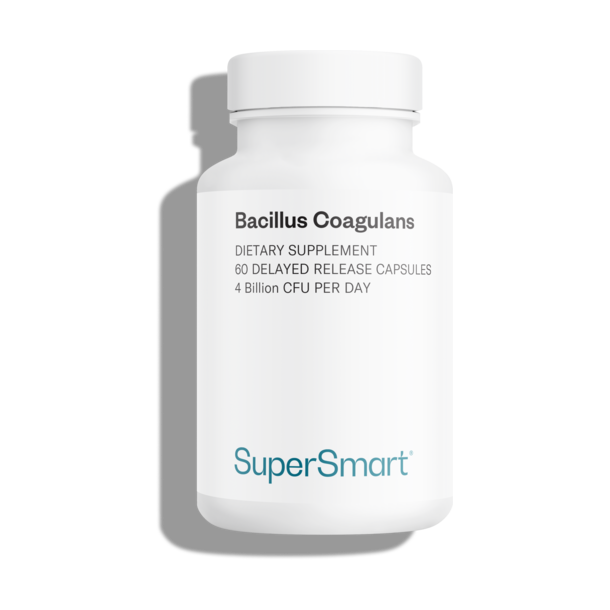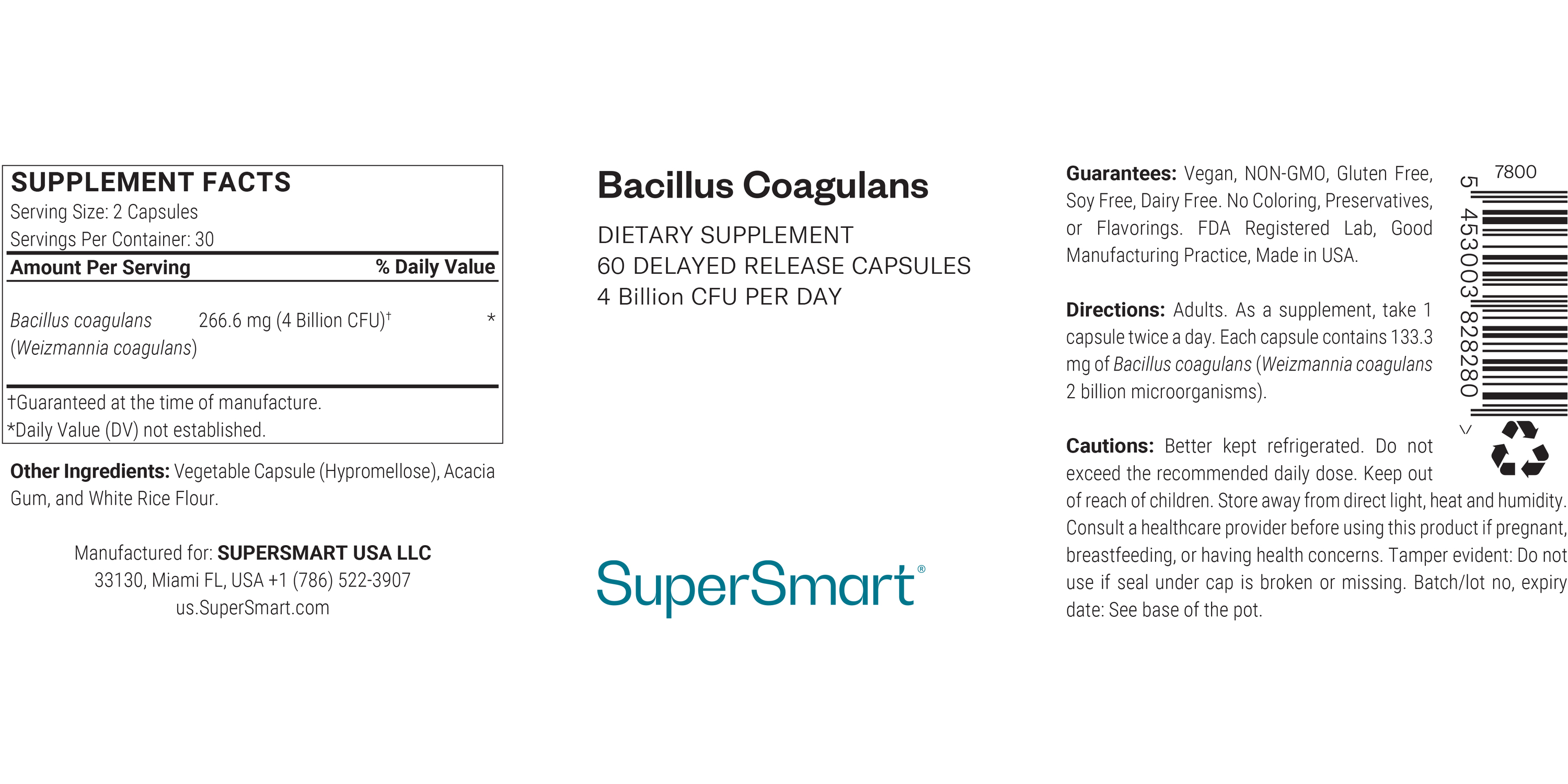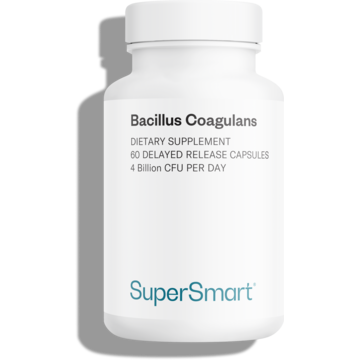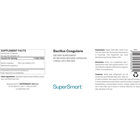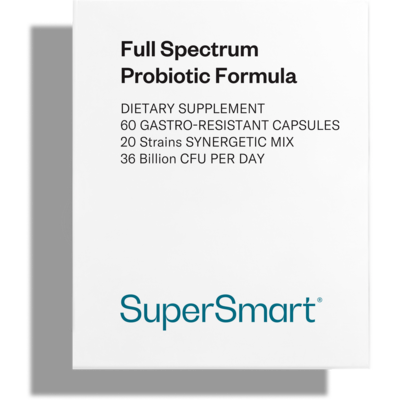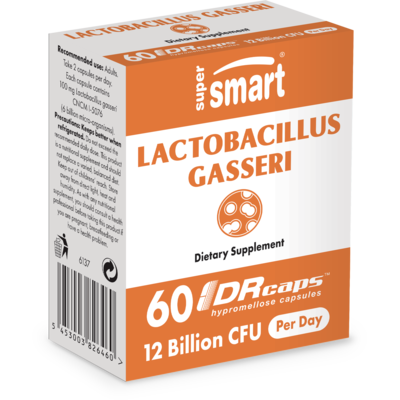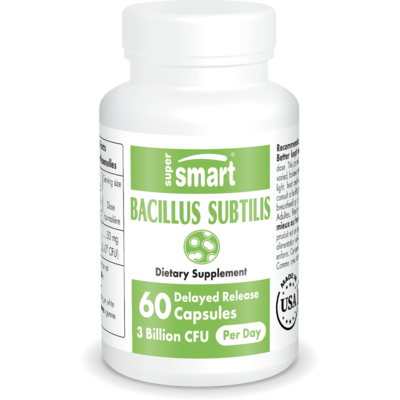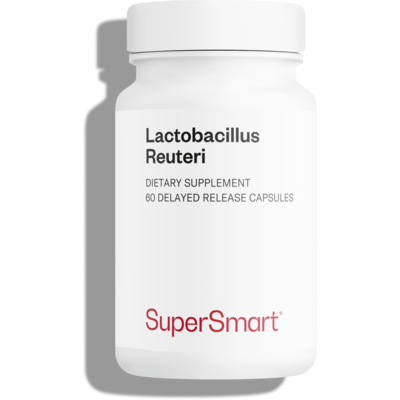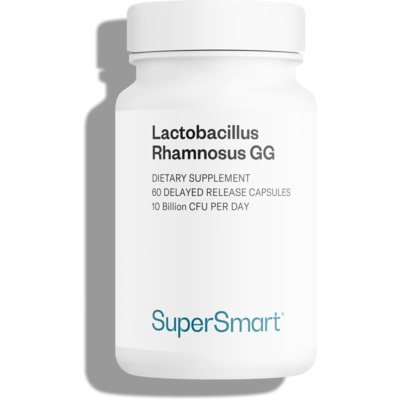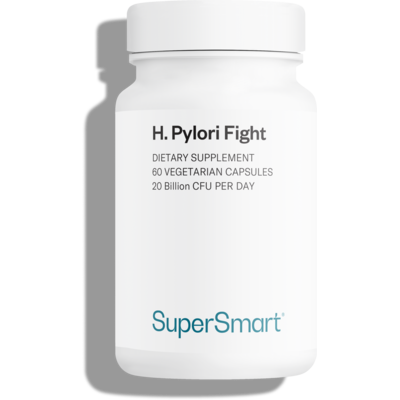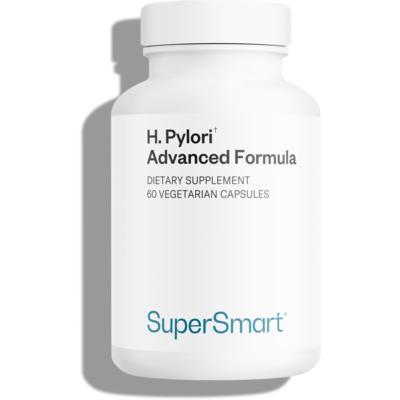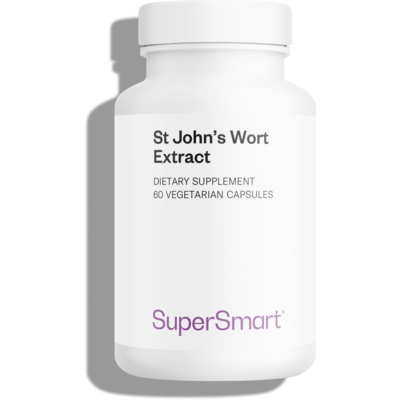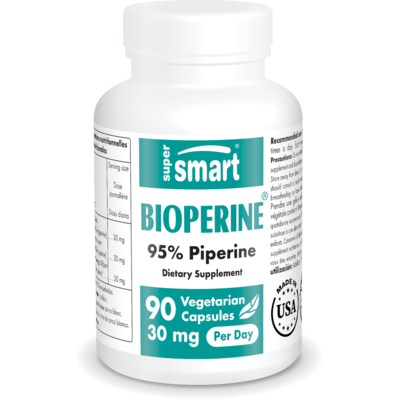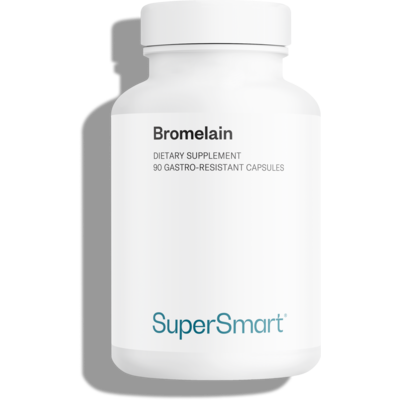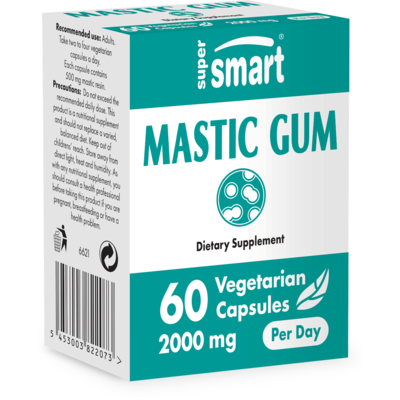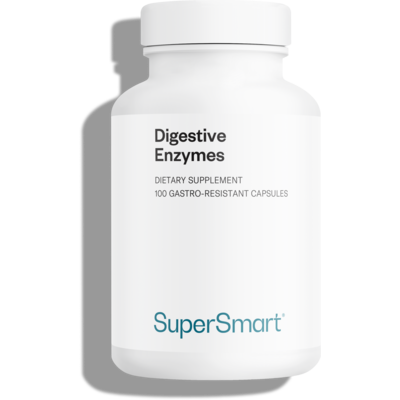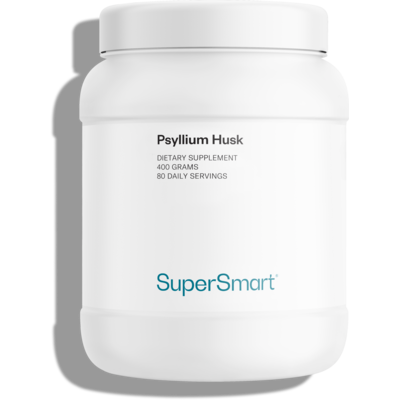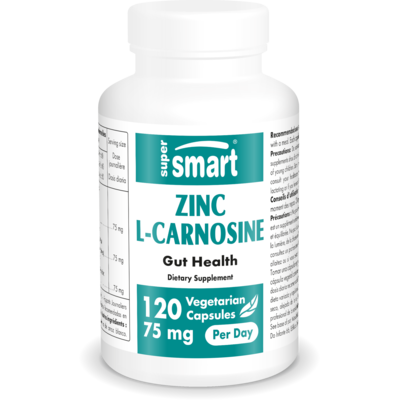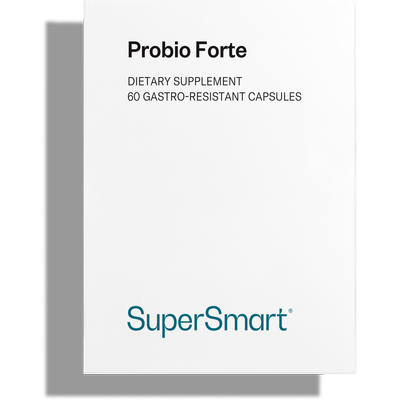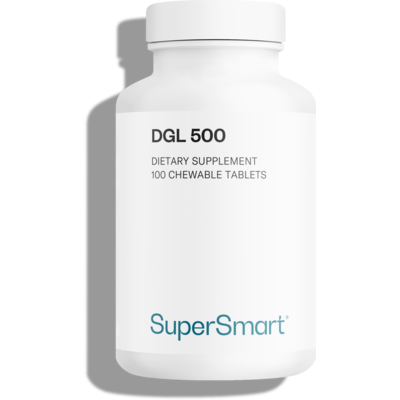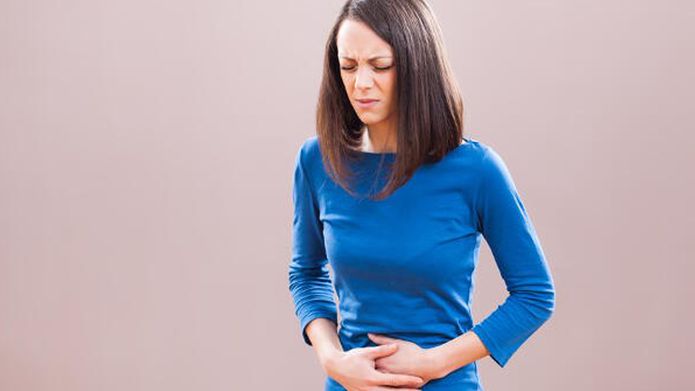Limited quantity
Bacillus Coagulans
B Coagulans Probiotic Supplement for Gut Microbiota and Digestive Support *
Create Your Offer
Our Bacillus Coagulans supplement is a shelf-stable probiotic providing at least 2 billion CFUs per capsule, designed to help support digestive well-being and gut flora balance.*
This probiotic with characteristics of both lactobacillus and bacillus is considered as an allochthonous bacterium – it is not native to the human gut but may be introduced through dietary sources and supplementation – and features a spore-forming strain, possibly known for its resilience to digestive challenges, such as stomach acidity and bile salts.*
Its robustness may allow it to travel through the gastrointestinal tract intact, potentially making it an interesting addition for those seeking microbiota diversity and digestive support.*
This supplement is part of our Gastrointestinal Health category.
Bacillus Coagulans: A Resilient Probiotic Strain?*
First isolated in 1932, Bacillus coagulans is a rod-shaped, Gram-positive, spore-forming bacterium supposedly known for its environmental adaptability.* Though it is not naturally resident in human gut flora, it can be found in certain plant-based foods – such as fruits, vegetables, soil products – and may colonize the gut when consumed regularly.*
Though now classified as a Bacillus, the taxonomy of Bacillus coagulans seems to have long been the subject of discussion.* Previously known as Lactobacillus sporogenes, it seems that it was grouped with lactobacilli due to its lactic acid production capacity.* However, its spore-forming capability – a feature not typically found in lactobacilli or bifidobacteria – eventually led to its reclassification as a bacillus.*
Encapsulated in a naturally protective spore form, B. coagulans may offer resilience to different environmental factors such as heat, drying, osmotic shifts, and pH variations.* This characteristic could allow it to remain intact through the digestive process, including exposure to stomach acid, bile salts, and digestive enzymes.* Some studies seem to suggest that a high percentage of these spores may reach the intestines and begin to activate within a few hours (possibly 4 to 6) of ingestion.*
Emerging research appears to indicate that spore-forming probiotics such as Bacillus coagulans may play a role in supporting gut microbiota composition, encouraging immune system balance, and contributing to the production of digestive enzymes.*
Potential Benefits of Bacillus Coagulans Probiotic*
Bacillus coagulans may help:*
- Support occasional digestive discomfort: some clinical studies seem to have examined the role of Bacillus coagulans in encouraging tolerance to abdominal sensations and maintaining digestive ease.*
- Maintain microbial balance during dietary changes: research appears to suggest that this probiotic may support gut microbial environment during or after temporary shifts in routine, such as travel or dietary modifications, potentially supporting equilibrium during these times.*
- Promote regularity and digestive transit: findings from certain studies might indicate a potential link between Bacillus coagulans supplementation and encouraging changes in stool consistency and frequency in individuals with occasional irregularity.*
- Support microbial balance in women: preliminary evidence may suggest that this strain could be useful in maintaining a balanced microbiome when paired with traditional approaches.*
- Maintain immune system balance: Bacillus coagulans might produce naturally occurring compounds such as lactic acid and short-chain fatty acids that may contribute to microbial balance and immune modulation.*
- Support oral microbiome health: this probiotic may influence the balance of bacteria in the mouth and help promote an environment that could favor beneficial microbial species.*
Bacillus Coagulans and Bacillus Subtilis
Bacillus coagulans and Bacillus subtilis are part of the same Bacillaceae family and appear to be recognized for their spore-forming properties.* Their main difference lies in their endospore location – which seems terminal in B. coagulans and sub-terminal in B. subtilis.
These two probiotic strains may work synergistically to help support gut microbiota diversity.* Some animal studies might suggest that when combined, they could help promote the presence of beneficial lactic bacteria while maintaining a balanced intestinal environment.*
WARNINGS
Do not exceed the recommended daily dose. This product is a nutritional supplement and should not be used as a substitute for a varied and balanced diet or a healthy lifestyle.
STORAGE
Store in a cool, dry place away from direct sunlight, heat, and humidity. Keep out of reach of children.
PREGNANCY AND MEDICAL CONDITIONS
If you are pregnant, breastfeeding, or have any medical conditions, consult your healthcare provider before using this product.
SUPPLEMENT INTERACTIONS
Consult your healthcare provider before use, especially if you are taking any medications or other supplements as there may be potential interactions.
Need Help?
Phone
+1 (786) 522-3907
From 9 am to 6 pm (EST)
You May Also Like

